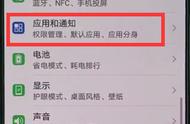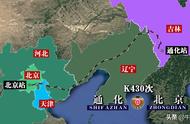1. attitude [ˈætɪtju:d]
n.态度,看法;姿态,姿势
a feeling or opinion about something or someone, or a way of behaving that is caused by this
参考例句:
1. What's his attitude toward this business? 他对这事是什么态度?
2. His attitude was shocking to her. 他的态度令她感到震惊。
2. troublesome [ˈtrʌblsəm]
adj.伤脑筋的,麻烦的
causing a lot of problems for someone
参考例句:
1. Teaching seems troublesome to him. 教书对于他来说好像是烦扰的事。
2. This work is very troublesome. 这工作很讨厌。
3. goal [gəʊl]
n.目标,目的;球门;终点;得分
an area on a playing field , that usually has two posts with a net fixed behind them, where players try to send the ball in order to score in sports such as football and hockey
参考例句:
1. I shot the ball into the goal. 我把球踢进球门。
2. That was his best goal. 那是他最好的一次得分。
4. conclusion [kənˈklu:ʒn]
n.总结,结束,决定,结论
the final part of something
参考例句:
1. I found the conclusion of his book very interesting. 我觉得他这本书的结尾很有趣。
2. He came to the conclusion at one jump. 他一下子就得出结论。
5. petrol [ˈpetrəl]
n.(英)汽油([美]gasoline)
a liquid obtained from petroleum, used especially as a fuel for cars , aircraft and other vehicles
参考例句:
1. After a long journey, we got to a petrol station at last. 一场长途跋涉后,我们终于赶到了加油站。
2. Nowadays petrol costs too much. 如今的汽油太贵了。
6. shore [ʃɔ:(r)]
n.海岸,海滨,斜撑柱;vt.支撑,支持
the land along the edge of a sea , lake or wide river
参考例句:
1. It was a mile by water, four miles round the shore. 由水路去只有一英里,沿岸绕行要四英里。
2. The ship's cinema was empty because everyone was on shore. 船上电影院空无一人,因为大家都上岸去了。
7. translator [trænsˈleɪtə(r)]
n.翻译者,翻译机
a person whose job is changing words, especially written words, into a different language
参考例句:
1. He used to be a translator. 他从前是一位翻译员。
2. His uncle is a writer and translator. 他的叔叔是个作家兼翻译家。
8. arrangement [əˈreɪndʒmənt]
n.安排,准备;整理,排列,布置
a plan for how something will happen
参考例句:
1. There's nothing to keep me to such an arrangement. 什么也不能使我遵从这样的安排。
2. The arrangement is all right with me. 这样安排我没意见。
9. comb [kəʊm]
n.头梳,鸡冠;vt.梳头发,梳毛;vi.(浪)涌起
a flat piece of plastic , wood or metal with a thin row of long narrow parts along one side , which you use to tidy and arrange your hair
参考例句:
1. Don't forget to comb your hair before you go out. 不要忘记临出门梳梳头。
2. We use a comb to tidy our hair. 我们用梳子来梳理头发。
10. freezing [ˈfri:zɪŋ]
adj.冰冻的,冷冻用的,严寒的
extremely cold
参考例句:
1. It is freezing outside, and put on your winter coat. 外面很冷,穿上你的大衣吧。
2. It's freezing in the river. 河水冰人。
11. comment [ˈkɒment]
n./vi.评论;注释;意见
something that you say or write that expresses your opinion
参考例句:
1. I am afraid I can not comment on the issue. 恐怕我不能对此问题加以评论。
2. The king refuses to comment on the election results. 国王拒绝评论选举结果。
12. concern [kənˈsɜ:n]
vt.(使)担忧;涉及;关系到;n.担心;关注;(利害)关系
to cause worry to someone
参考例句:
1. It's very kind of you to show so much concern for us. 谢谢您对我们这么关心。
2. Our losses are beginning to concern me. 我们的损失使我担心起来。
13. microwave [ˈmaɪkrəweɪv]
n.微波,微波炉
an electric oven that uses waves of energy to cook or heat food quickly
参考例句:
1. Microwave is a time-saving cooker. 微波炉是一种节约时间的厨具。
2. She put the soup in the microwave. 她把汤放进微波炉里。
14. majority [məˈdʒɒrəti]
n.大多数;过半数
the larger number or part of something
参考例句:
1. He is elected by a majority of 40 votes against 10. 他以40票对10票的大多数票当选。
2. He believes that his supporters are in the majority. 他相信支持他的人占多数。
15. president [ˈprezɪdənt]
n.总统;总裁;校长;院长;会(社)长;主席
(the title given to) the person who has the highest political position in a country which is a republic and who, in some of these countries , is the leader of the government
参考例句:
1. They selected him to be president. 他们选举他为总裁。
2. The president's speech lacked sincerity. 校长的演讲缺乏诚意。
16. greengrocer [ˈgri:ngrəʊsə(r)]
n.蔬菜水果商,菜贩
a person who owns or works in a shop that sells fresh vegetables and fruit
参考例句:
1. I must go to the greengrocer's. 我还得到蔬菜水果店去一下。
2. The greengrocer unloaded the potatoes from the van. 蔬菜水果商把土豆从车上卸下来。
17. fulfillment [fʊl'fɪlmənt]
n.履行,实现,完成
a feeling of satisfaction at having achieved your desires
参考例句:
1. After many years, his plans have come to fulfillment. 很多年之后,他的计划实现了。
2. He was willing to face any hardship in fulfillment of his duty. 他愿意面对任何困难去履行他的职责。
18. advocate [ˈædvəkeɪt]
n.提倡者,拥护者;vt.鼓吹,主张,支持,拥护,提倡
to publicly support or suggest an idea , development or way of doing something
参考例句:
1. I don't advocate doing such things. 我不主张干这样的事情。
2. He got the best advocate in town to defend him. 他请城里最好的律师为他辩护。
19. characteristic [ˌkærəktəˈrɪstɪk]
adj.特有的,典型的;n.特性,特征,特色
a typical or noticeable quality of someone or something
参考例句:
1. Bananas have their own characteristic smell. 香蕉有其特有的香味。
2. Some animals possess the characteristic of man. 有些动物具有人类的特征。
20. motel [məʊˈtel]
n.汽车游客旅馆
a hotel by the side of a road , usually with spaces for cars next to each room
参考例句:
1. Late that night he landed at a motel. 那晚他到了一家汽车旅馆。
2. The motel manager showed the guests to their room. 汽车旅馆经理把旅客领到他们房间。











